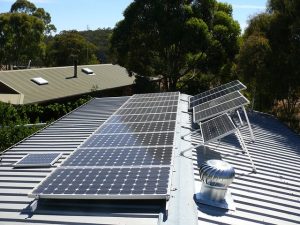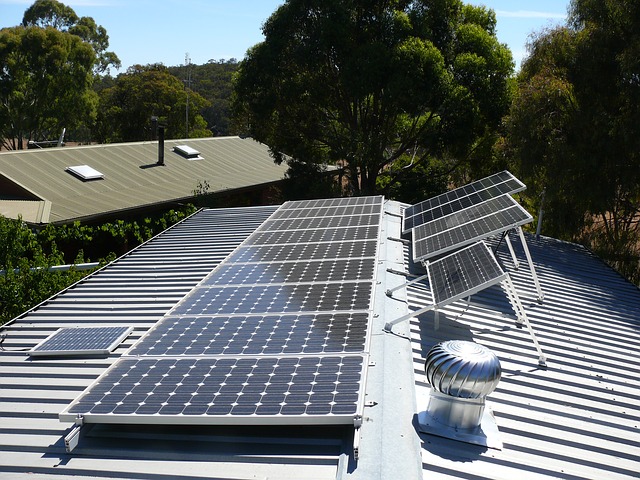
In this day and age, the cost of traditional fuels seem to be increasing all the time while take-home pay seems to be getting smaller with each year that goes by. With that in mind, it shouldn’t come as much of a surprise that a great many people find themselves looking into alternative sources of energy to fuel their homes and potentially save some money in the process.
Solar panels for home use are exactly the same as the huge industrial size solar panels that we see used in national grids and solar farms, only much smaller of course. Contrary to popular belief, they are powered by natural light as opposed to actual heat, so you do not have to live somewhere where the sun is blazing down all day long, as solar panels will still generate energy in less sunny places provided there is still light during daylight hours.
Solar panels can be installed on virtually any house or building, old or new. For new constructions, they can be designed to fit snugly within the roof itself, where they can directly catch sunlight without taking up any extra space. This is especially beneficial in areas where planning permission regulations are strictly enforced, saving the homeowner a lot of paper work in the process. With regard to existing properties, solar panels can be mounted on brackets and positioned to point in the most suitable direction and at the most efficient angle.
The first solar power build on any building is usually a fairly modest one, normally consisting of only a few small solar panels, just enough to power your home’s lighting or maybe power a workshop or hobby shop. Once some time has passed, you get to see for yourself just how efficient and cost-effective solar power can. Through upgrades, additions and expansions to your existing solar power array, you should be able to provide enough solar energy to power your whole home all year ‘round. There are even household items such as solar cookers available that use absolutely no fuel other than the energy generated via solar power. In the case of the solar-powered cooker, the only drawback is that they may take a little longer to cook things, but when you take into account that it is doing its job completely free of cost it is hard to be too annoyed by this minor inconvenience.
Of course, one of the best of the advantages of solar energy is the fact that it is totally green, with no pollution or wasteful by-products such as harmful gases or spill-off. This means that you are not contributing to the harmful effects of global warming – in fact you are actually lowering your carbon footprint. While the benefits of this eco-friendliness is self-explanatory, once it is implemented (most territories offer grants and incentives to make setting up solar panels more cost-effective) there are no running costs (not to mention the fact that the sun won’t simply decide to increase its prices all of a sudden), so the free energy is something of a no-brainer.
